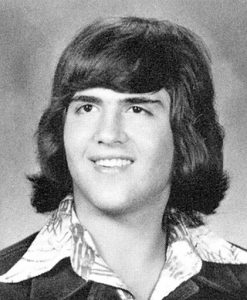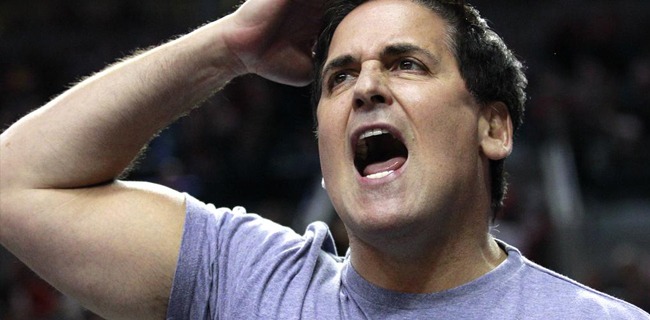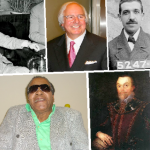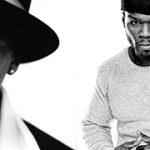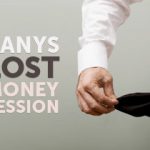
Mark Cuban knows how to win.
Since Cuban bought the Dallas Mavericks NBA basketball team in 2000, the team’s winning percentage has gone from 40% to 69% and in 2011 the Mavericks won their first ever NBA championship.
Cuban also has a winning record in business. Born into a working class family, Mark became a billionaire by starting and selling tech companies such as MicroSolutions and Broadcast.com.
Keep reading for ten winning lessons from Cuban’s $2.3 billion success.
#1 Get Paid to Learn
Cuban paid his way through school any way he could. He worked as a disco instructor, party promoter, and even started a chain letter that earned about $1,100.
After graduating from business school, he didn’t stop learning:
“In every job, I would justify it in my mind, whether I loved it or hated it, that I was getting paid to learn and every experience would be of value when I figured out what I wanted to do when I grew up.”
If your career or business isn’t yet what you want it to be, adopt Cuban’s attitude and think of it as an opportunity to continue your education. One day you’ll be able to use what you learn to accomplish your ultimate goals.
#2 Visualize Your Success
“When I got to Dallas, I was struggling – sleeping on the floor with six guys in a three-bedroom apartment. I used to drive around, look at the big houses, and imagine what it would be like to live there and use that as motivation.”
Mark Cuban
In 1982, Cuban moved to Dallas, Texas and got a job as a bartender. What he really wanted to do was run his own business and retire by the age of 30. He told himself that he would do it “every day.”
After getting fired from his jobs as a salesperson at Your Business Software, Cuban decided the time was right to pursue his dream. He started his own software selling company, MicroSolutions, which he sold in 1990 for $6 million.
At the age of 32, Cuban was a millionaire who could afford to live in the big houses that he used to drive by as a down-on-his-luck bartender. More importantly, he was living the life of his dreams.
#3 Effort is the Only Requirement
In sports, the only thing a player can truly control is effort. The same applies to business. The only thing any entrepreneur, salesperson or anyone in any position can control is their effort.
Mark Cuban,
Three years after starting MicroSolutions, business was good. Cuban was set to earn $60,000 that year and he was only 27 years old.
Even though he felt successful, Cuban saw major room for improvement. The PC industry was in a slump and local area networks had yet to take off like MicroSolutions had hoped. Cuban’s solution was to “recommit to getting up early, staying up late and consuming everything [he] possibly could to get an edge.”
The behavior of your industry, your clients, and your competitors is mostly outside of your hands. It’s pointless to become frustrated with things that you can’t control. Instead, focus on maximizing your effort.
#4 Sell High
In 1995, a few years after selling MicroSolutions, Cuban decided to help Chris Jaeb and Todd Wagner launch AudioNet, an Internet radio company that would soon be rebranded to Broadcast.com. Cuban became a billionaire overnight when they sold the company to Yahoo! in 1999 for $5.9 billion in stock.
With all the buzz building around Internet companies, it was the perfect time to sell. Just a year later, the dot-com bubble would burst and the perceived value of Broadcast.com would plummet.
Make sure you sell your company at the right time. Wait until the market is high for your industry in order to get the most money for your hard work.
#5 Diversify
After the sale of Broadcast.com, Cuban was left holding a huge chunk of Yahoo! stock. That stock that was not immune to the dot-com bubble either: it went from being traded at $118.75 a share in January 2000 to a measly $4.05 a share by September 2011.
Luckily for Cuban, he had already taken steps to diversify. Cuban explained to Fast Company Magazine:
“After we sold Broadcast.com, I hedged my stock with synthetic indexes, in case the market cratered in the six months before I could hedge my actual Yahoo shares. It cost me $20 million, but I protected what I had.”
Mark Cuban
The only way that Cuban was able to hold onto his fortune was by making sure all of his eggs weren’t in the same basket. After becoming a billionaire, Cuban immediately began spreading his wealth around in different industries: becoming the owner of the Dallas Mavericks, Landmark Theatres, Magnolia Pictures, and the chairman of the HD cable network HDNet.
#6 Don’t Focus on Exit Strategy
Cuban has built his fortune by building successful companies and then selling them when the time is right. Even so, he insists that he’s always looking for a “cash-in-pocket strategy, not an exit strategy.” When Business Insider asked Cuban about how entrepreneurs should think about their exit strategies, he said:
“They shouldn’t. They should focus on building the best possible business. If you are great, people will notice and opportunities will appear.”
The best exit strategy is to build a company with long-term, intrinsic value.
#7 Be a Loudmouth
“In the past people used to tell me to shut up a bit. But what I believe is to put out your opinion and let everyone else react. If I’m wrong I’m wrong. People are afraid to put out their opinions and get push back.”
Mark Cuban
I’ve written about the value of keeping your mouth shut and letting your actions speak for themselves. But Mark Cuban proves there are exceptions to this rule.
Cuban sometimes speaks first and thinks later – and the result is that he’s put his foot in his mouth more times than he can count. But while Cuban’s big mouth often gets him in hot water with the media, it also ensures that he gets “push back”: a constant stream of reactions from the outside world. For Mark, the tradeoff is worth it.
If you’re natural tendency is to be a loudmouth, then you can benefit from embracing it. Just be ready to apologize.
#8 Get Free Press
Cuban has appeared as himself in TV shows like Entourage, The Colbert Report, and The Simpsons. He’s also had recurring roles on reality shows like Shark Tank and Dancing with the Stars.
Collectively, Cuban has reached tens of millions of Americans through these programs. That means greater awareness of Cuban and his personal brand – which ultimately can be leveraged to help Cuban’s business ventures.
#9 Know Your Business Better than Anyone
“You got to be the smartest guy in the room about your product.”
Mark Cuban
Cuban spends so much time researching his industries that he told TechCrunch, “I need a break because I spend so much time reading. If there’s something I get into, I won’t stop. I read a lot of industry trade publications for cable now.”
Cuban believes that, when it comes to creating a successful company, knowledge is power. His advice is simple, yet ambitious: “Know your business and industry better than anyone else in the world.”
#10 Do Something Different
“When you’ve got 10,000 people trying to do the same thing, why would you want to be number 10,001?”
Mark Cuban
As an angel investor, Cuban is always looking for companies that demonstrate a clear sense of market differentiation. In fact, he immediately dismisses any companies that aren’t carving out their own niche: “Wherever I see people doing something the way it’s always been done, the way it’s ‘supposed’ to be done, following the same old trends, well, that’s just a big red flag to me to go look somewhere else.”
If you want to repeat something that’s already been done, then you open a franchise. If you want to be a successful entrepreneur like Mark Cuban, you’ll have to do something different.
